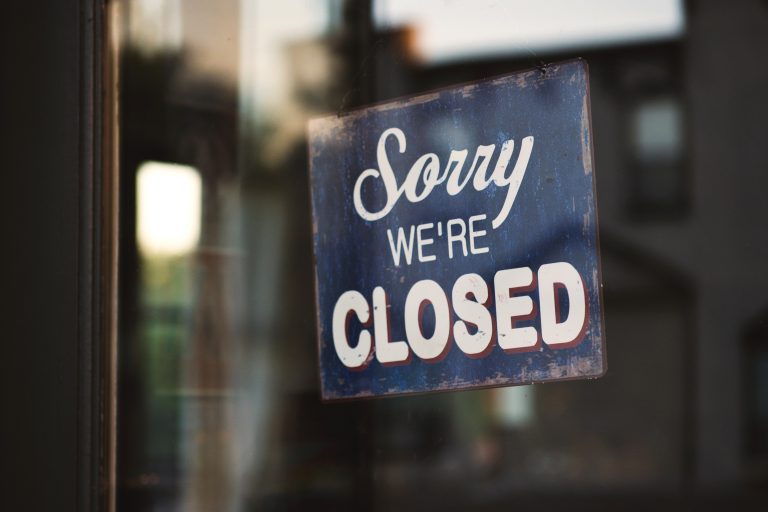As the COVID-19 pandemic continues to spread, commercial tenants and landlords are becoming increasingly anxious as they assess the ability of tenants to maintain normal business operations. Through the Public Health [2019 Novel Coronavirus(2019-Ncov)] Regulations 2020 (“the Regulations”), the Government of Trinidad and Tobago has implemented a number of restrictions, including but not limited to, the size of public gatherings and the types of businesses that are permitted to operate. These circumstances only increase the concern and uncertainty engulfing landlords and tenants during these unprecedented times.
In light of these extraordinary circumstances, many businesses have been forced to close or are required to have non-essential employees work from home. With the COVID-19 pandemic and its effects rapidly changing on a daily basis, it is unsurprising that landlords and tenants are concerned as to how COVID-19 will affect them and specifically their businesses and leasing arrangements.
Here, we seek to provide some useful answers to our most frequently asked questions. The answers are designed to be general guidance and not be relied on as specific legal advice.
The tenant
Q. What are my rent paying obligations during cOVID-19?
At the time of writing, there is no legal provision in Trinidad and Tobago excusing tenants from pay rent while the Regulations are in effect or otherwise. Tenants will continue to remain liable for any payments that fall due under the lease. This is unless there is a specific clause in the lease, such as an ‘abatement of rent’ clause, which provides some form of redress.
Q. What if I cannot meet my rental obligations?
If you are facing difficulties in meeting your rental obligations, you should communicate with your landlord, who may consider any of the following measures:
- A temporary rent concession;
- Agreeing a realistic schedule for repayment of any arrears;
- Whether there is any government assistance available for the tenant to cover rent;
- Whether there is a tenancy deposit that can be drawn upon;
- Whether there is a guarantor that can be called upon to pay the rent, if there are arrears.

Q. What if I cannot meet my future obligations and I have to end my tenancy? (the presence of a force majeure clause)
It is understandable that the current crisis may result in the closure of many businesses. However, if there is a force majeure provision in your lease, this may affect your tenancy agreement. For a discussion of the applicability and effect of force majeure in the context of commercial contracts, please see our earlier post.
Force majeure is a legal principle where unforeseen circumstances prevent a party from fulfilling obligations under a contract. However, protection under this principle is only granted if the contract or lease includes a force majeure clause. Although not normally common in leases, it is advisable that you check your lease to determine if such a clause is present.
If the lease does include a force majeure clause, its applicability will turn on whether the COVID-19 pandemic falls within the scope of a force majeure event. It may be that the clause defines a force majeure event as including a pandemic or epidemic. In the absence of such a definition, it may be that if the Government classifies the pandemic as a national emergency, the clause may then become applicable. In either scenario, force majeure clauses are strictly interpreted by the Courts.
Whether Coronavirus would constitute a force majeure event for a specific lease will depend on a number of factors, including, whether Covid-19 has hindered performance of the lease or made it impossible, whether the outbreak was foreseeable at the time the lease was entered into as well as what the rest of the lease says. One should also consider whether there were any reasonable steps that you could have taken to avoid the effects of the force majeure event.
Each force majeure clause has its own requirements regarding notice and the effect of triggering the clause. Advice should be sought in relation to the presence and applicability of any force majeure clause present in the lease. Should the force majeure clause apply, the consequences will be those stated expressly in the clause. This is likely to be the suspension of the performance of the obligations affected by the force majeure event.
Q. My lease does not have a force majeure clause. what other options are available to end my tenancy?
If you wish to terminate your lease, you should:
- Examine your tenancy agreement/lease and establish whether there is a tenant break option to terminate.
- Seek legal advice on the implications of such a provision.
- Enter into discussions with your landlord regarding a possible surrender.
As we saw in our earlier post in the context of commercial contracts, where there is no force majeure clause, the doctrine of frustration may apply. However, it is very rare that a lease will be frustrated. The frustrating event has to occur after the lease was entered into and must be so fundamental that it goes to the root of the lease and renders performance of the lease impossible, illegal or makes it radically different from the one contemplated by the terms of the lease.
In the present circumstances, where the closure or business shut down remains a relatively short period in the context of a long term lease, it is unlikely that the courts would treat the lease as frustrated. On the other hand, if you have a short-term lease or licence, the potential for running a successful argument may be greater.
Legal advice ought to be sought on your particular circumstance to determine whether frustration would apply to your lease.
Q. What happens if my lease is restricted to a particular use?
Some leases contain clauses which restrict how you are allowed to use the premises during the term of a lease. Due to the present circumstance, many businesses have been forced to adapt or change their usual modes of operation. However, this change or adaptation may be contrary to the permitted use, as stipulated in the lease.
A landlord might opt to relax such a restriction to enable the tenant to continue to generate income, which will in turn secure his rent. However, it is advisable that any such concession be in writing and be reviewed by an attorney.

Q. What happens if my lease contains a keep open clause?
Some leases may include obligations for the tenant to keep the premises open. However, if your business is classified as a business which must remain closed under the Public Health [2019 Novel Coronavirus(2019-Ncov)] Regulations 2020, then you should comply with these regulations. Operating in contravention of these regulations, when your business has been mandated to be closed, is an offence, liable on summary conviction to a fine of fifty thousand dollars and imprisonment for a term of six months.
The Landlord
Q. What happens if my tenant refuses to abide by the government imposed restrictions?
Under the Public Health [2019 Novel Coronavirus(2019-Ncov)] Regulations 2020, the Government has mandated the closure of several businesses, including bars, clubs, theatres, gaming or betting houses and restaurants.
Your tenant may be compulsorily required to close their business, should they fall within the above categories. If your tenant continues to operate, you should report them to the authorities. Further, most leases will contain a ‘compliance with laws’ clause, meaning that you may be able to force your tenant to close the premises by bringing a claim to enforce their obligations to comply with statute. Legal advice ought to be taken before taking such an action.
Q. What are my health and safety obligations?
Landlords and tenants remain liable to ensure that their properties meet statutory health and safety requirements and, while there is no specific government guidance in relation to commercial properties, it is likely that urgent, essential health and safety repairs should be carried out, subject to compliance with rules around self-isolating and social distancing.
If a property is single let with no services, it is unlikely that the landlord has any health and safety responsibilities to the tenant specifically related to the Coronavirus. However, in a multi-let property, such as a mall, where the landlord may retain common areas, it may be that it is necessary to introduce additional health and safety measures to ensure the protection of its tenants, employees and the general public. Legal advice ought to be sought to determine the appropriate measures to be taken in your particular circumstance.
Q. What if the lease is up for renewal during this period?
In light of the difficulties in valuation during this pandemic, it may be difficult to agree rents in the current market. A written agreement could be entered into with the tenant, to extend the period for renewal. Legal advice ought to be taken prior to taking this step.

Practical tips for landlords
- Liaise with your tenant as early as possible and establish whether they will have difficulties in meeting their rental obligations.
- Be understanding towards their circumstances and consider temporary rental concessions such as reduced rent or monthly rent payments, depending on the nature of the tenancy.
- If you are likely to have difficulty meeting your own loan obligations during this time, liaise with your financial institution to determine whether it is possible to receive a deferral of your loan payment, a facility which many banks in Trinidad and Tobago are currently engaged in. In the alternative, you can agree amendments to the terms of your facility agreement with your financial institution.
- If you have a contract with a service provider/providers to provide services under the lease, you may experience difficulties meeting these payment obligations if your tenant/tenants fail to pay service charges during the relevant period. You should liaise with your suppliers to confirm whether any concessionary arrangements are possible.